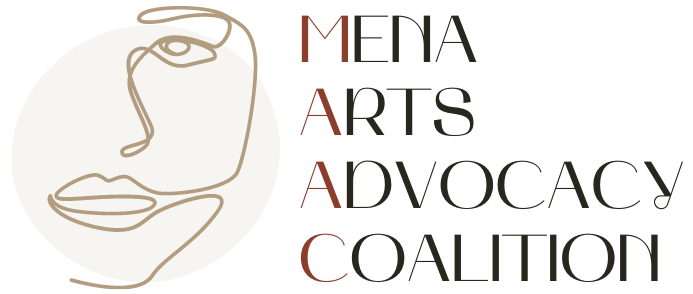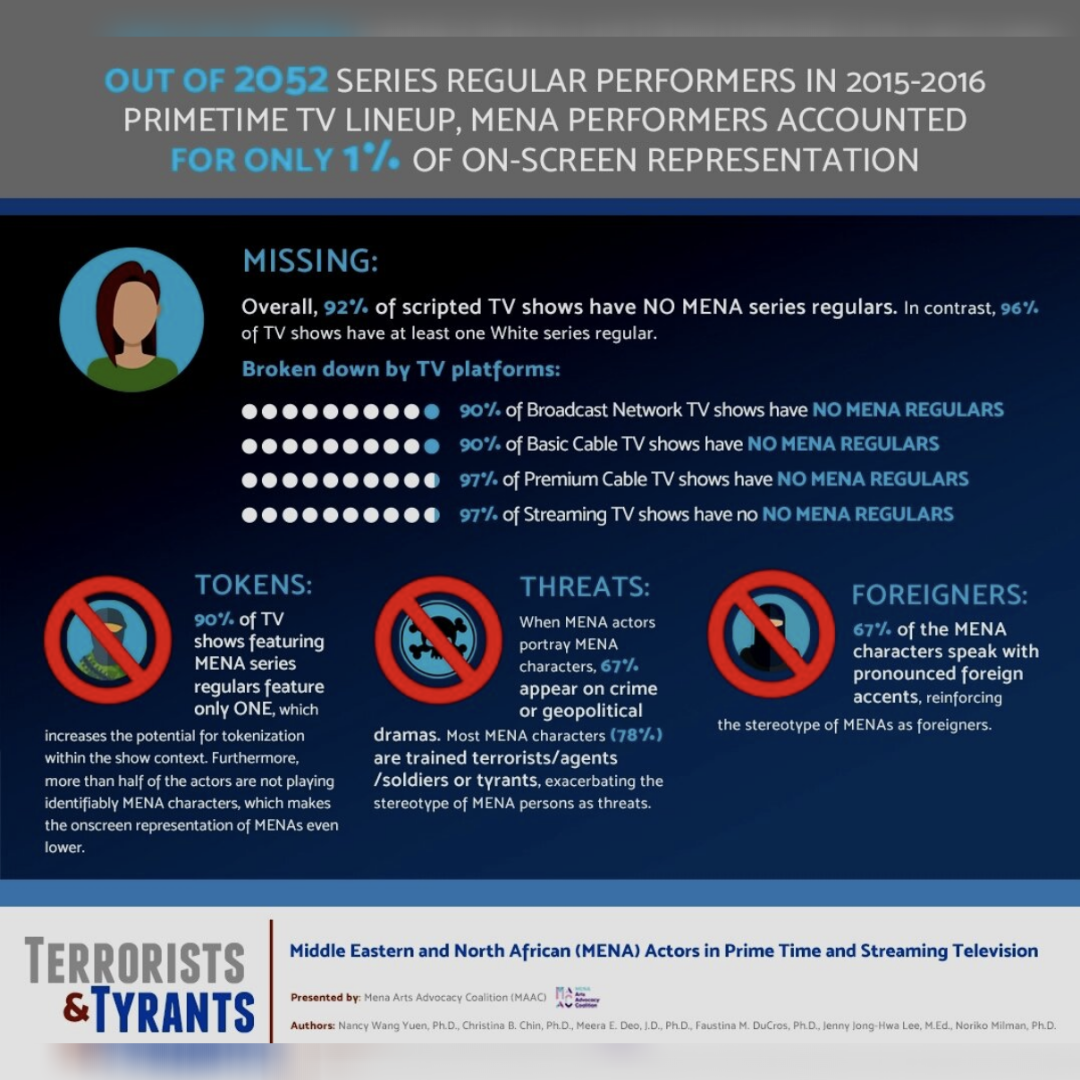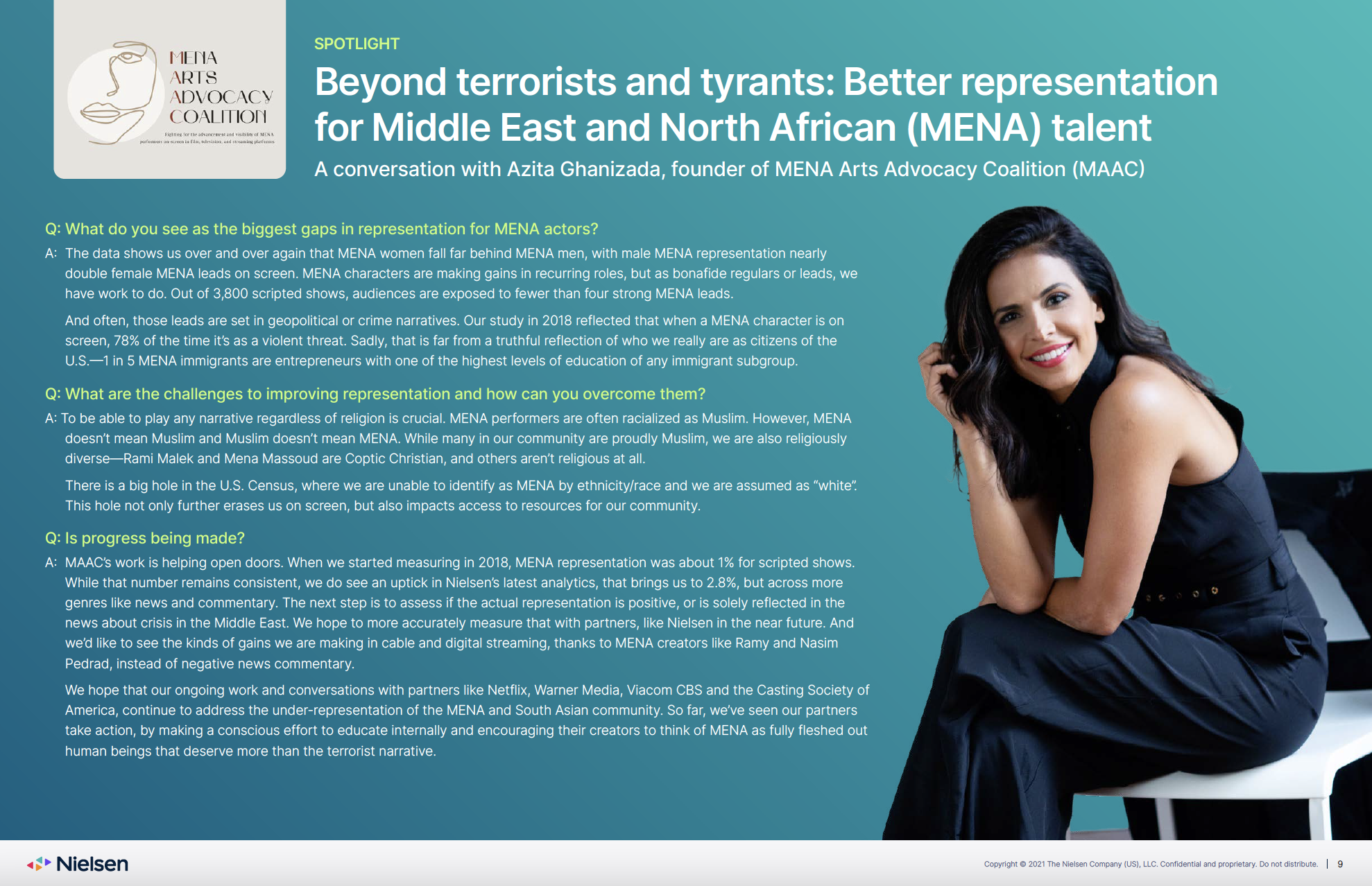
Our Impact
Commissioning and presenting research on MENA on TV is crucial, and allows us to show decision-makers the real data that forces a dialogue on how to disrupt these dangerous silos.
Research.
Up until 2018, the MENA community was erased in any data highlighting inequality on-screen, instead put into the “other” or “caucasian” categories. Our report with Nancy Yuen Wang, “Terrorists & Tyrants,” changed that, calling to attention the severity of the dangerous representation of our community. Since then we have successfully lobbied for the inclusion of MENA in all high-profile reports on Hollywood. We hope to fund more of our own studies to highlight not just the quantity of MENA performs, creatives, and writers, but the quality of narratives we are part of.
Visibility.
We created the MENA category, which gave millions of MENA diaspora a seat at the table in conversations surrounding diversity, invisibility, and dangerous stereotypes our communities have faced on screen. MAAC works directly with SAG-AFTRA, Casting Society of America, WGA-West, The Academy, USC’s Annenberg, UCLA Social Science, CBS Networks, CBS Studios, NBC Universal, Lionsgate Films, and more to create visibility for MENA performers and creatives.
Action.
Through the power of storytelling and social media, we have launched video campaigns highlighting resources and services we provide to tackle the lack of protecting MENA performers in Hollywood and beyond are facing. Through MAAC's advocacy, the Academy announced new eligibility guidelines to be considered for an Oscar by 2024, and through MAAC's advocacy, for the first time ever, the Academy included MENA in their language.





